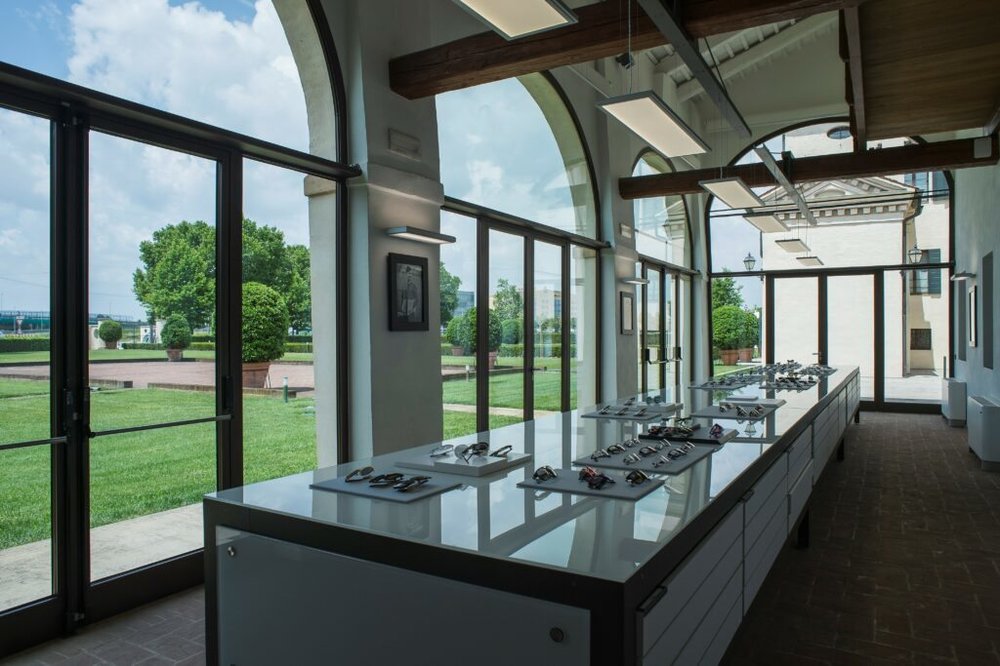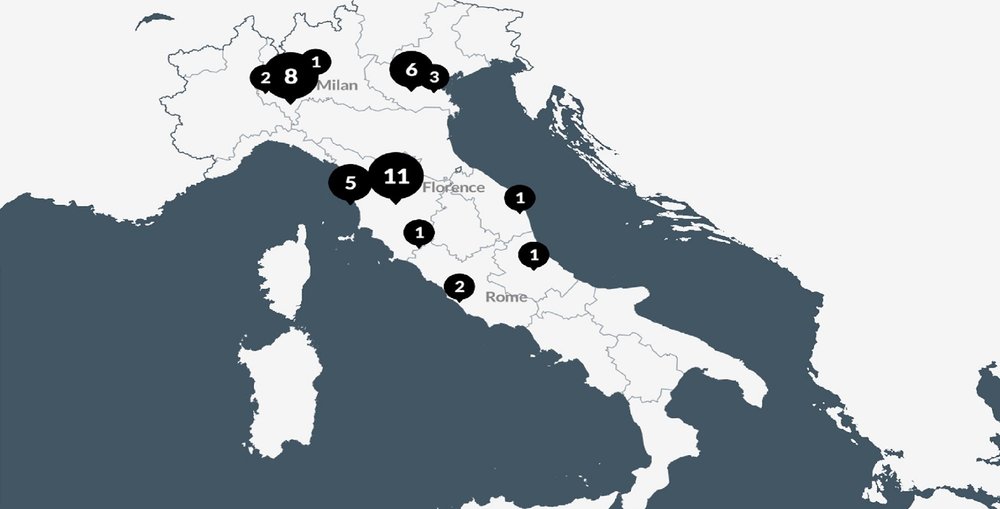Now more than ever, Italy remains the hub of the global
luxury industry, including for Kering. With its latest investment in the immense logistics platform in Trecate in Piedmont, the luxury group is strengthening its ties with the essential country; not only for the production of its products, but also for its strategic positioning, offering an ideal interconnection between its supply chain and distribution structure.

When presenting the business’ new hub during a video-conference on Thursday, managing director Jean-François Palus did not want to disclose the amount the firm has committed to this operation. He did, however, stress that it was, “Kering’s largest investment in the peninsular."
“It is by no coincidence that we have chosen Italy,” said Palus. “It is a country where we have historically made our main investments in artistic and artisanal know-how, and now also in logistics skills.”
Since the French business took a stake in Gucci in 1999, a decisive step in the company’s evolution towards its transformation into a pure player in the luxury segment, Italy has continued to grow in importance for the business, in effect making Kering a Franco-Italian group.
This is evidenced by the presence of Italian managers at the highest levels of the business. Moreover, four out of 12 members of its executive committee are Italian nationals (Yves Saint Laurent CEO Francesca Bellettini, Gucci head Marco Bizzarri, Bottega Veneta CEO Bartolomeo Rongone, and Kering Eyewear founder Roberto Vedovotto).
Beyond the Alps, Kering employs 11,000 people out of its total of 38,000, over a quarter of its workforce, while transalpine brands represent close to half of its portfolio. The group’s real power house is Gucci, which accounts for around 60% of its turnover and is followed by Bottega Veneta, acquired in 2001 and with a revenue which increased from nearly €30 million ($35.8 million) to €1.2 billion in 2020. The business also counts in its portfolio Brioni, Pomellato, and DoDo as well as Kering Eyewear, the eyewear manufacturer it created and established in Veneto in 2014.
Between workshops and production sites (24) and tanneries (4), the luxury giant has 28 factories in the transalpine region which will be added to in the coming years with a leather workshop for Yves Saint Laurent in Scandicci, near to Florence in Tuscany, as well as Balenciaga’s first production workshop in Italy, scheduled for 2021. It therefore has a similar presence to its competitor LVMH, which has 31 production sites in the country.

In addition to these sites are two design offices, an exhibition space, and two hubs dedicated to innovation (the MIL -Materials Innovation Lab-, a library of sustainable textiles in Milan, and the TIL -Test & Innovation Laboratory- , a chemical, physical, and biological test centre for its brand activities located in Prato, Tuscany), 11 headquarters and offices, as well as the new logistics hub in Trecate, bringing the total number of Kering entities in the country to 44, located across six Italian regions (Lombardy, Piedmont, Tuscany, Veneto, Lazio, and Abruzzo, which hosts the Brioni workshops and factory).
The group has also invested in the preservation and transmission of trades and techniques through schools located within its brands such as the Scuola di Alta Sartoria which trains tailors at its brand Brioni and the Maestri Pellettieri at Bottega Veneta for leather goods. Pomellato has also partnered with the Galdus Goldsmith School to train silversmiths. In 2018, Gucci inaugurated the Gucci ArtLab, a research and development laboratory for its leather goods and footwear accessories and the School of Love, which offers a training and specialisation course to its new employees.

